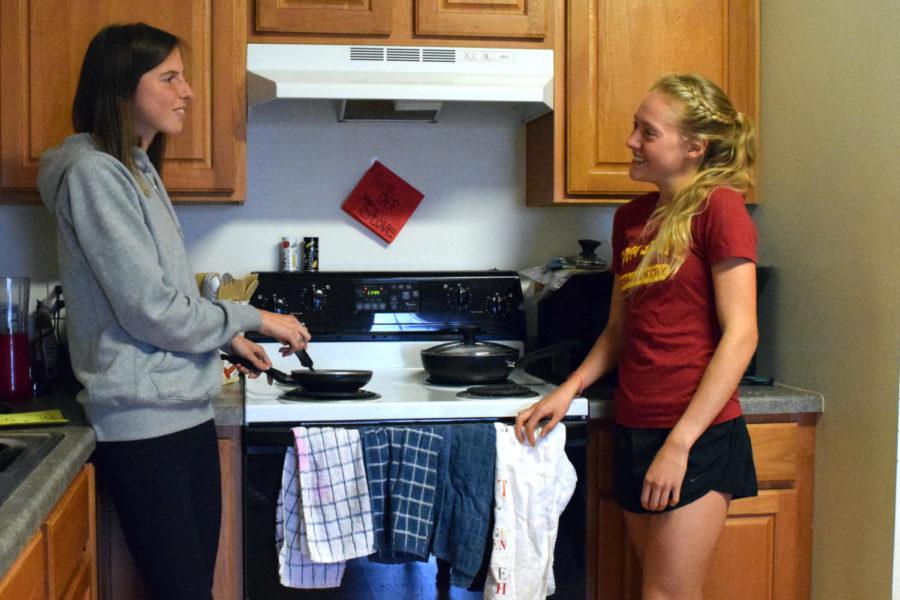Rooming with a stranger
Senior Crystal Nelson,left, and junior Bethanie Brown, right, cook over the stove in their West Ames apartment on Tuesday.
August 17, 2015
For a lot of freshmen, being away from home and sharing a living space with someone else who may be a complete stranger are new experiences.
Developing a relationship with a roommate can be challenging. The Department of Residence understands this and has tools to help new students have a successful start to their new living arrangements on campus.
Students who live in residence halls have a variety of methods to “break the ice” with their roommates. Students are given their roommate’s contact information when the assignment is made. This allows students to decide who brings what, along with other living space decisions.
Living with a new person has challenges. The Department of Residence has tools to help students start their new rooming assignment successfully.
The first resource students have is their roommate agreement. This document addresses some of the key elements to discuss when living with a stranger. It requires both parties to discuss their preferences about room responsibilities, guests, academics and more.
Once the conversation and document have been completed, students can use the document as a frame of reference when confronted with a conflict.
Another source students have is their community advisor (CA) or apartment community manager. CAs are trained in conflict management and can provide a third-party perspective. They can help identify and solve many issues roommates experience.
Students can also talk to hall coordinators about any conflicts.
“It comes down to communication, communicating with each other to start and with that setting clear expectations for the space as well as for each other,” said Kody Henke, residence hall coordinator at Wallace. “My recommendation would be to set those expectations in regard to sharing of the space, what can be borrowed [and] what can be used.
“Having these conversation right from the beginning can help avoid a conflict that may arise in the future,” Henke said.

















